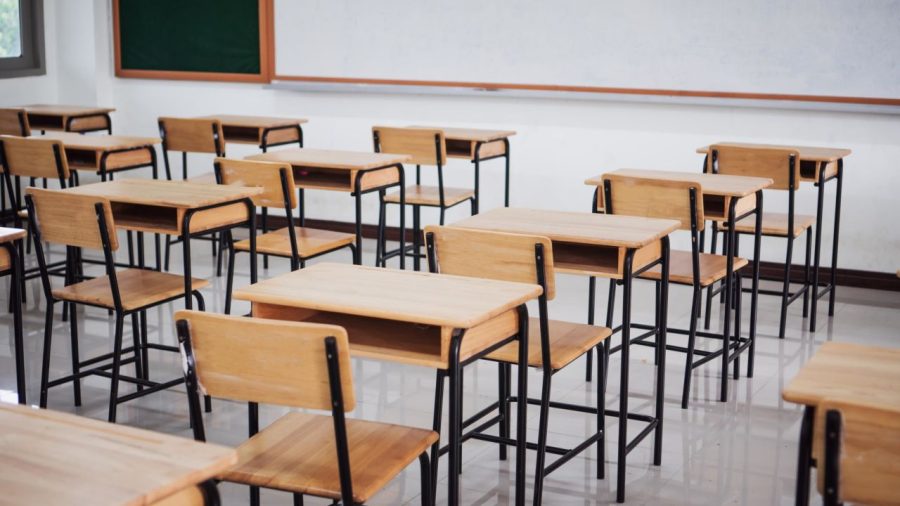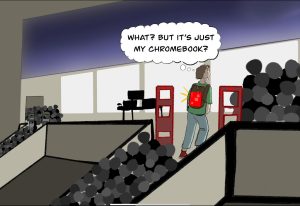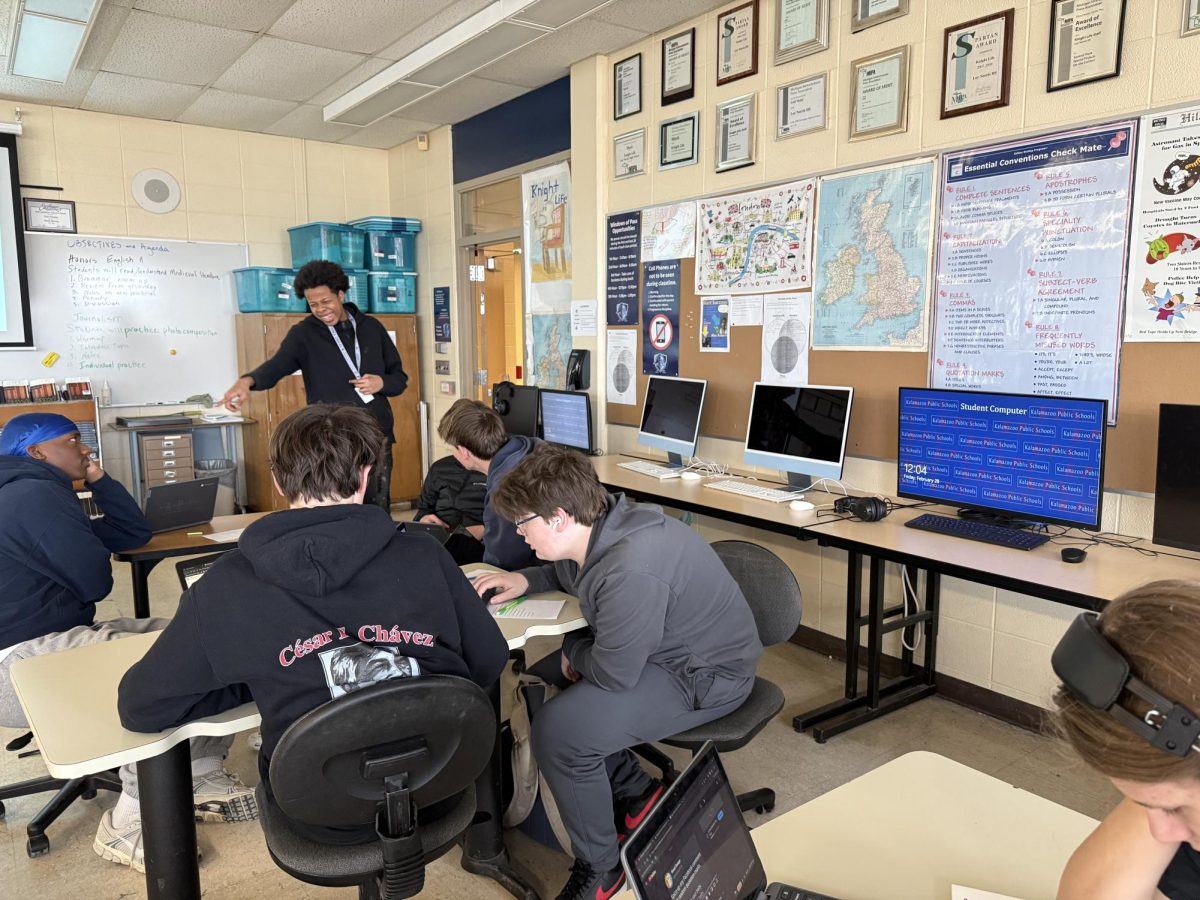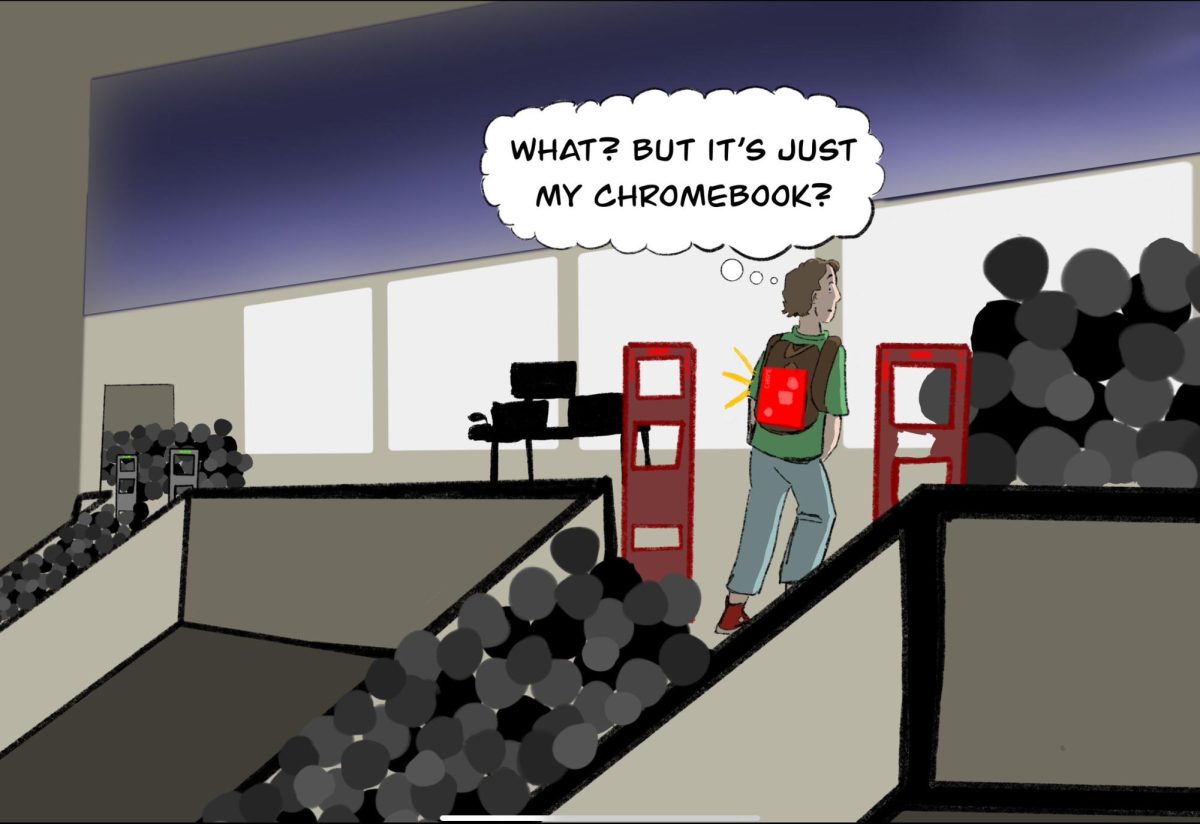U.S. schools aren’t properly preparing students for their futures
February 9, 2023
At some point in everyone’s lives they will need to cook, clean, fix an appliance, change a tire or renovate a house. Should it not be the school’s duty to prepare adolescents for these events?
High school graduates leave home with little time or preparation for their transition into adulthood. In as little as three months after their graduation, students are already making the shift to independence.
A report by Hire Helper found that around 43 percent of college students moved away from home. The responsibility falls not only on the parents but also on the schools to ensure that these young adults are capable of being on their own.
Some argue that school is only meant to help students career-wise and as preparation for four-year colleges, while others say that school should prepare students for real life. Those concerned need to realize that these two things go hand-in-hand.
Laundry is among the most basic household chores, but 60 percent of Birmingham City University students said they rarely, if ever, did their own laundry. In fact, 72 percent of all college students said they were not prepared to clean independently.
Laundry has never been taught in standard U.S. schools but it would be beneficial for students to learn the basics.
If home economics – now called Family and Computer Science (FCS) – was still widely taught, college students would be more knowledgeable about independent living. In one course, students learn about home organization, finances, meal planning and manners, among a number of other lessons that relate to adult living.
Out of 39 thousand middle and high schools, only about 6 thousand offer home economics classes in the US. Loy Norrix is one of the many who choose not to offer this class.
It’s quite often that schools are put in situations where cuts have to be made regarding staff and classes. Unfortunately, Principal Christopher Aguinaga was put in this position when COVID-19 began to arise.
“I was directed I had to cut five teaching positions,” Aguinaga continued, “They [students] didn’t necessarily need parenting which was essentially home ec.”
When it comes to making these decisions, budget, requirements, and resources must be taken into account. Principal Aguinaga refers to classes like home economics as “resource intensive,” and when they’re not required for graduation, it makes these classes more likely to be cut. In this instance, a considerable amount of products (food, sewing materials, etc.) will be used with no way to get them back.
Making FCS courses a mandatory part of the high school curriculum would better prepare youth for college, having their own homes, balancing work with their personal lives and taking care of children.
For those who intend on entering the trades, there aren’t many in-school classes to assist with their career plans. If a student wants to take auto body, wood shop, or FCS, for example, they would need to enroll in a Career and Technical Education (CTE) course. While having the option is good, it’s not very convenient for students – especially if the off-campus class doesn’t fit in with their regular school schedule.
Fortunately, the Kalamazoo Regional Educational Service Agency [KRESA] is currently constructing a 101,655-square-foot CTE center for all of the county. High school students will be able to get trained and certified in specific areas of their choice.
Even if K-12 is just preparation for post-secondary education, vocational schools are legitimate options – students aren’t limited to college and university. It’s only fair that every student is given the opportunity to take classes suitable for their career choice.
At one point in time, all of these classes were commonly available in U.S. middle schools and high schools. Even driver’s training (which is subjectively expensive and taken through private companies) was part of the curriculum.
“Times have changed, budgets have changed, and also priorities,” Principal Aguinaga explained.
When it comes to educating students, the U.S. is going backwards. If the success of students is truly a priority, then this problem needs to be corrected soon. If students are meant to act like adults then they should be taught how to function as one, and there should be more courses and resources for them to pursue their ambitions.












